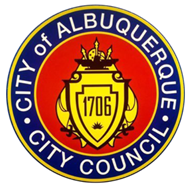
Community-Police Collaborative is Launched
Plan for Extensive, Broad Based Public Outreach Initiative to Seek Feedback and Implement Community Based Solutions
Albuquerque, NM
June 12, 2014
The Goal of Albuquerque Collaborative on Police-Community Relations:
- generate a collaborative, diverse, and broad-based dialogue &
- create a sustainable action plan that transforms police-community relations now and for years to come.
The Albuquerque Collaborative on Police-Community Relations will consist of several stages that will seek input from all interested community stakeholders in order to set goals and expectations and develop sustainable community-policing strategies and plans that ultimately result in a widely accepted agreement between the community and the police department.
The First Phase:
In the first phase, the city will seek input, ideas and recommendations from anyone interested in participating in meetings that will
- be constructive and collaborative in nature,
- be designed to advance police-community relations,
- enhance public safety, and
- address issues that affect quality of life in Albuquerque.
This process will determine the goals and expectations that our residents and our police officers have for the City, the department, and police-community relations, as well as to provide specific solutions to address them.
Survey Process
There will also be an online survey process for those interested in participating via the internet. Surveys will be accessible at many city offices and facilities, in order to reach as many Albuquerque residents as possible and seek their feedback.
Specific Groups to Participate
Including:
- a diverse cross section of the local community such as those closely affected by officer-involved shootings and use-of-force,
- members of local advocacy groups,
- representatives of neighborhood associations,
- police officers and their families,
- youth and young adults,
- civil and human rights organizations,
- mental health professionals and advocates for the homeless,
- business leaders and representatives from minority and
- faith based communities and organizations.
Meetings will be professionally facilitated to stimulate productive dialogue with specific groups of individuals, but there will also be opportunities to co-mingle groups with different experiences and perspectives in order to build understanding and consensus between groups.
Questions to be Addressed
Including:
- What are your goals and expectations for police-community relations in Albuquerque?
- What are your goals and expectations for police-community interactions and conduct in Albuquerque?
- Why are these goals and expectations important to you? (What experiences, values, beliefs, feelings influence your goals?
- How do you think your goals can be best achieved?
- What are your specific suggestions and ideas?
The Second Phase:
In the second phase, the data gathered from Phase One will be analyzed, organized and summarized by an experienced, professional outside agency. Separate feedback sessions will then be held to present the summary forms.
Each stakeholder group will then draft a set of community goals. Through a voting process by all groups, a set of prioritized community-wide consensus goals will be established and affirmed.
These goals will then be implemented into an action plan designed and built by the community and APD to advance police-community relations, enhance public safety, and address issues that affect quality of life in Albuquerque.
The Third Phase:
In the third phase, a monitoring committee made up of local volunteers and leaders will be established to monitor, track progress and make recommendations to keep the process moving forward.
The City will also hire a facilitator to oversee the overall process and report back to the mayor, city council and the community.
Timeline
The initial process is expected to take 6 months but is designed to create long term, sustainable solutions for better policing and community outcomes.

